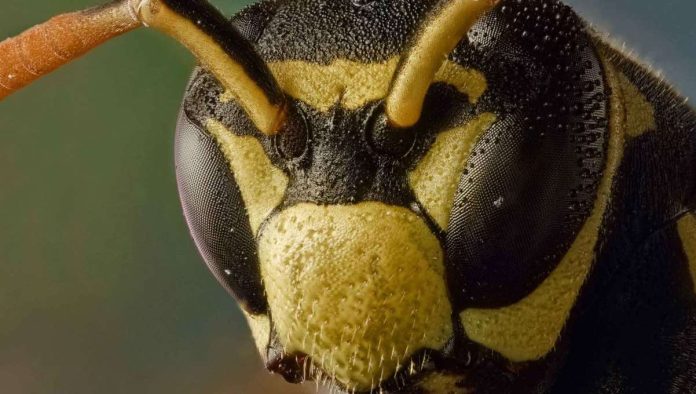A study of wasps that live in social communities and that live as loners in Costa Rica, Ecuador and Taiwan has led to the development of a new theory of the relationship between socialization and brain capacity in insects. A comparison of the behavior and the brain structure of 29 different species of wasps led Dr. Sean O’Donnell, a professor in the Drexel University College of Arts and Sciences, to propose alternative evolutionary pathways for brain development and skill distribution in social and nonsocial insects.
Wasps that live in social societies have smaller brains than wasps that live as individuals. The mushroom bodies in the brains of solitary wasps were larger than wasps that lived in group societies. The mushroom body is responsible for higher cognitive functions in insects like spatial memory, associative learning, and multisensory integration. Socialization led to larger brains in vertebrates and humans.
At some time in the distant past, wasps that formed a social society lost the need for some brain functions because those brain functions became accommodated by the group of wasps. One of the reasons that this change could have occurred is that wasps that live in societies are usually related as a family. The sharing of information through chemical means reduced the need for social insects to retain the abilities that make most animals smarter because the group accommodated the extra brain power needed for social activity as exhibited by animals and people.















